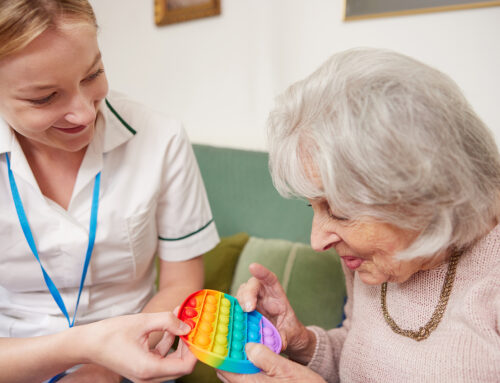World Hepatitis Day falls on July 28th as a way to raise awareness of a disease that is often misunderstood. Learn more about the different types of hepatitis and what they mean when your dad is diagnosed with one of them. All forms of hepatitis are viral and can lead to inflammation of the liver. Some are more likely than others to damage the liver, but there may be vaccinations that help prevent the virus.
Hepatitis A
Hepatitis A is the first type of hepatitis and affects around 25,000 people per year. Rates of this type have drastically increased in the past six years. Contaminated frozen strawberries are one of the leading reasons for the increase in the past few years. Cooking the berries is the only way to kill the virus. Your dad’s home health care team can help him with this.
It can be passed from one person to another, but exposure to contaminated food and water is just as common. Symptoms can last two months and include loss of appetite, fatigue, joint pain, and abdominal pain. There is a vaccine available.
Hepatitis B
Up to 1.17 million adults may have hepatitis B, but it’s estimated that 66% don’t realize it. Blood tests are the best way to detect it before the symptoms and liver damage occur. Symptoms include fever, fatigue, nausea, vomiting,
It’s spread through blood contact with others. Some of the common ways are getting an ear piercing from a person who hasn’t cleaned the instruments in between people, going for dialysis treatments where the equipment wasn’t cleaned properly, or sharing a razor with an infected person.
There is a vaccine for hepatitis B that’s now recommended for adults up to the age of 60 who have not yet been vaccinated. Adults aged 60 or older who have not been vaccinated should be if they have a risk factor such as diabetes or kidney disease that requires treatments through needles or dialysis machines.
Hepatitis C
Hepatitis C is one where there is no vaccination, and some people clear the virus on their own. Others can get a serious infection that damages the liver. It’s spread through contact with blood, so it’s similar to hepatitis B.
Hepatitis D
Hepatitis Delta (D for short) is only possible if you have hepatitis B. You can have both at the same time or just have hepatitis D after being treated for and cleared of hepatitis B.
Hepatitis E
Hepatitis E is not common in the U.S. It’s contracted through drinking water infected with human waste or eating raw venison, pork, camel meat or milk, or shellfish that’s contaminated with the virus.
What Are the Common Treatments?
If your dad has hepatitis, work with his doctor to make sure he’s following treatment goals. A home health care nurse can keep him from having to spend time in the hospital by drawing blood and administering medications. Talk to a specialist to set up the necessary home health care arrangements.






